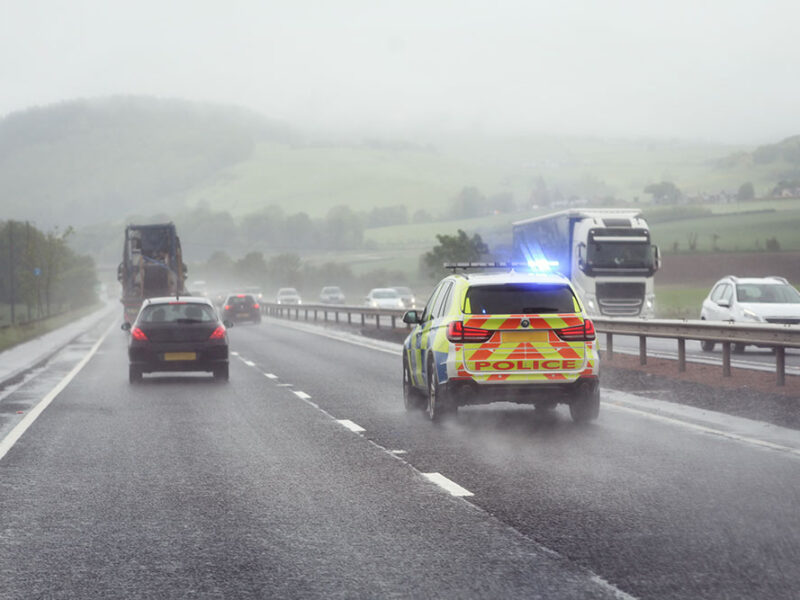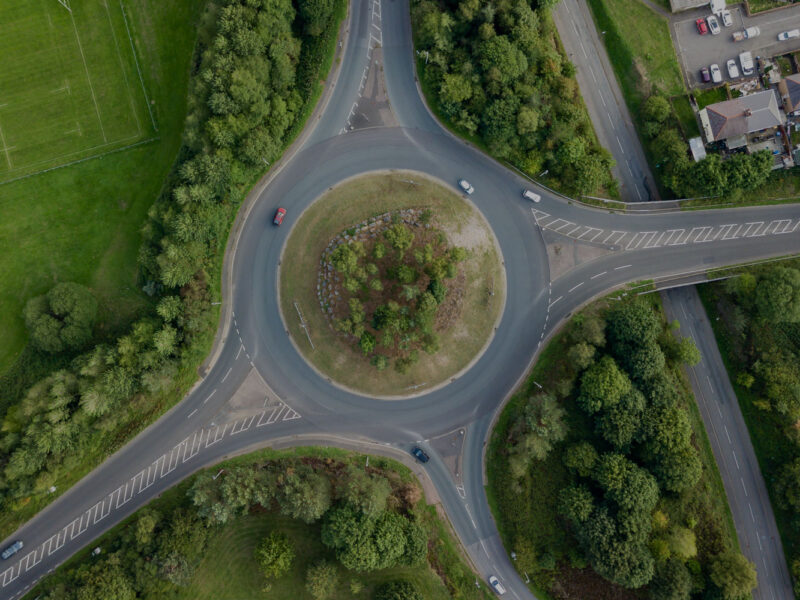On 18 January 2017 the Supreme Court of England and Wales announced its decision in the dispute over wheelchair access on buses which has been going since 2012. The ruling that "bus drivers must try to persuade other passengers to make room for wheelchair users" has been heralded as a landmark victory by both sides with bus operators welcoming the Court's clarification and guidance, and disability campaigners highlighting Mr. Paulley's victory (although the original decision to allow him compensation was not upheld).
The decision suggests that drivers may be justified in delaying a journey's progress "with a view to pressurising or shaming recalcitrant non-wheelchair users to move" but many readers may also be aware of the Wakefield case in which, a few days after the decision in Mr. Paulley's case was published, a wheelchair user (Kirsty Shepherd) was denied access to a bus when the wheelchair user space was occupied. In the 'real world' therefore, the jury is still out in determining what effect the decision in Mr. Paulley's case will actually have and it may be that Parliment will need to consider legislation to clarify the legal position on both sides.
Mr. Paulley's case:
The case of FirstGroup Plc v. Doug Paulley arose when Mr. Paulley, a wheelchair user living in the North East of England, attempted to board the 9.40 bus (being operated by FirstGroup) to Leeds. The space that is normally allocated for the use of wheelchair users was occupied by a lady with a sleeping child in a pushchair.
A notice was present on the bus, which stated "Please give up this space for a wheelchair user". At the point when Mr. Paulley attempted to board the bus the driver requested that the lady fold down the pushchair and move from the space. The lady refused to move. As a result of this refusal Mr. Paulley was not allowed to board the bus and so had to wait for the next one with the result that his journey was delayed.
The Road to the Supreme Court:
Mr. Paulley issued proceedings against FirstGroup for unlawful discrimination on the grounds of his disability. His claim was successful at trial and he was awarded £5,500.00 in compensation.
FirstGroup appealed against this decision successfully and persuaded the Court of Appeal (in a unanimous decision) that FirstGroup was not required by law to force one passenger to make way for another (even in the event of a disability) and the company's 'provision criterion or practice' ("PCP") did make sufficient reasonable adjustment so that Mr. Paulley was not unfairly disadvantaged.
Mr. Paulley then appealed to the Supreme Court where his case was considered by seven Lord Justices including the President (Lord Justice Neuberger) and the Deputy President (Lady Justice Hale).
Why did the Supreme Court rule in Mr. Paulley's favour on the main issue?
Readers will likely know that the Supreme Court judges unanimously decided to allow Mr. Paulley's appeal on the main issue and ruled that FirstGroup's PCP requiring a driver simply to request a non-wheelchair user to vacate the space that is normally reserved for a wheelchair user did not go far enough.
The question that operators will be asking themselves is 'what then does the court require of us in terms of a policy?'
This is how Lord Justice Neuberger sought to answer this question -
"A driver may form the view that a non-wheelchair user is reasonable in refusing to move from the space. If the driver considers that that is so, or even probably so, then it would not, at least normally, be unreasonable for any request to move not to be taken further. However, where the driver concludes that the non-wheelchair user's refusal is unreasonable, it seems to me that it would be unjustifiable for a bus-operating company to have a policy which does not require some further step of the bus driver in any circumstances. In particular, where there is some other place on the bus to which a non-wheelchair user could move, I cannot see why a driver should not be expected to rephrase any polite request as a requirement, and, if that does not work and especially if the bus is ahead of schedule, why the driver should not be expected to consider whether there was any reason why the bus should not stop for a few minutes with a view to pressurising or shaming the recalcitrant non-wheelchair user to move."
And he went on to say -
"The very fact that, under FirstGroup's current PCP... drivers were expected to request a non-wheelchair user to vacate a space needed by a wheelchair user, at least if there is a place for the non-wheelchair user to move to on the bus, demonstrates that drivers can be expected to show a degree of initiative - and to see whether or not there are spare places on the bus. I therefore find it hard to see how it could be unreasonable to expect FirstGroup to train its drivers to do a bit more, when appropriate, if and when an initial request is not complied with."
How Should Operators Respond to this Ruling?
The two areas that require attention from operators flow directly from the Supreme Court's decision:
Firstly operators should be reviewing their written policies to ensure that what those policies say dovetails with the Supreme Court's decision.
Secondly, operators will need to look at the training that they provide to drivers and the steps that they require drivers to take in order to seek to resolve difficulties if and when they arise with non-wheelchair users who refuse to move from designated wheelchair spaces to make room for a wheelchair user.
Wording in the Operator's Written Policy
Making revised policies work 'on the ground' is the real challenge. Relying upon drivers to apply their initiative is common sense and perfectly reasonable (and something most drivers do anyway), but making sure that an operator's policy is applied fairly and consistently by all its drivers will likely prove easier said than done and it will not happen by accident.
One solution would be for operators to draw up a checklist detailing the points that a driver should consider and including the assessment that a driver makes before deciding what action, if any, to take.
A reasoned decision based on sound criteria (the reason(s) why a person refuses to move, the availability of alternative space on the vehicle for the non-wheelchair user(s), the language that has been used to try to persuade the non-wheelchair user(s) to move, and the degree to which the vehicle is 'ahead of schedule' and therefore how much time is available to try to resolve the situation - always being mindful of the penalties for late running and the potential tension between spending time resolving these types of issues and risking a failure to keep up with a service timetable) can all be included in the checklist and drafted in such a way that the driver could make a record quickly of all such incidents so that a 'reasoned' decisioin is taken and noted down.
The operator's policy would no doubt require the driver to hand in all such records when returning to base, probably with a view to discussing the incident with the traffic office and perhaps reviewing (or at least retaining) any CCTV in case of follow up.
If having read this article you would like some advise on this subject then give us a call on 01279 818280 or click here to send an email.
Article first appeared in I-Croner. Copyright Richard Pelly February 2017

More News and Insight

DVLA Confirms New Rules for Professional Drivers Living with Diabetes
From Friday 7th November 2025 the rules were changed to allow diabetic drivers of PSV’s and HGV’s to monitor their glucose levels using Continuous Glucose Monitoring Systems….

Carrying Your Own: Horses to Widgets? Do you Need an O Licence?
The DVSA recently released a press release about the rules for transporting horses in horse boxes and trailers following an update on the guidance about using a tachograph in the vehicle being used to transport the animals…

The Senior Traffic Commissioner’s Statutory Guidance
The value of The Statutory Guidance Documents and the importance to operators, nominated transport managers and other professionals involved in the operation and driving of large commercial vehicles cannot be overstated…

Walkaround Checks – Where Road Safety Starts
Every day, often before the sun is above the horizon, hundreds of thousands of commercial vehicles are started up by their drivers and then they head out on to the UK’s road network to transport goods or passengers from one point to another, often with demanding time constraints thrown into the mix…

Traffic Commissioner’s Annual Report 2024/25: “Don’t Look Back in Anger”
Time has flown by and once again we find that the schools are back after the long summer break and the Office of the Traffic Commissioner has issued its annual report to the Secretary of State, providing a review of the year…

An Apple a Day to Keep the DVLA Away – A review of the DVLA’s Rules on Health Checks for Professional Drivers
There has been some discussion in the industry trade press recently that has highlighted proposed changes to how the disease of diabetes is monitored in professional drivers by the DVLA. One article in RouteOne Magazine stated that…

Light Goods – Heavyweight Industry: The DVSA’s New LGV Strategy
While relatively small in overall physical size light goods vehicles (LGVs) are now a large part of the UK road transport industry. There are currently estimated to be over 5.1 million light goods vehicles on UK roads today…

Employment Law Update – A tale like Scylla & Charybdis
Operators currently face their own real time nightmare in the form of a modern day version of the Greek mythological tale of Scylla and Charybdis (where sailors faced a narrow strait through which they had to pass which had a monster on one side and a whirlpool on the other!)…

Labour Government – Employment Rights Bill – What Will It Mean for Transport Businesses?
In October 2024 the Deputy Prime Minister, Angela Rayner set out her intention to reform the employment rights held by employees in the UK. In a press release issued at the time she is quoted a saying…

Revisiting the DVSA’s Guide to Maintaining Roadworthiness
In April 2025 the Driver & Vehicle Standards Agency (DVSA) issued the latest edition of its Guide to Maintaining Roadworthiness.

The Wheels on the Bus go Round & Round….but how do they Stop?
At the tail end of 2024 a Public Inquiry was held in front of Traffic Commissioner Kevin Rooney where the subject of brake maintenance practices was called into question…

Maintenance Provision Rating Scheme for Commercial Vehicle Workshops is Launched
One of the key tenants of running a commercial vehicle operation, whether ‘HGV’ or ‘PSV’ is that the maintenance of the vehicles is paramount. For some operators this will mean having their own maintenance facilities and teams to look after their fleet of vehicles in house, but the majority of operators in the UK are reliant on 3rd Party maintenance providers…
